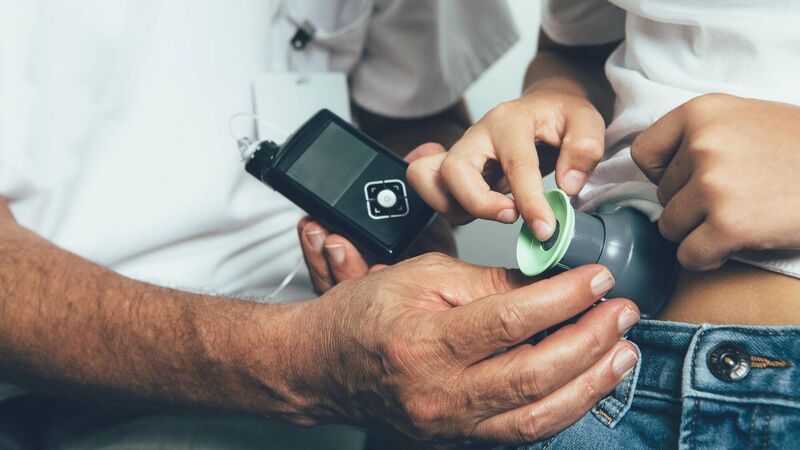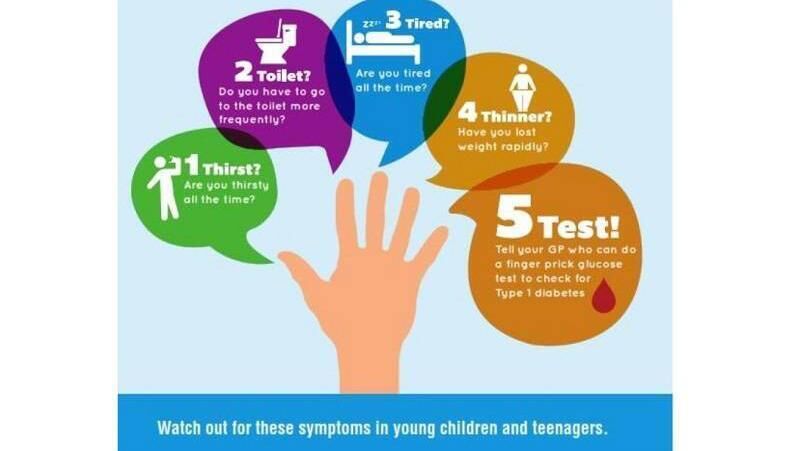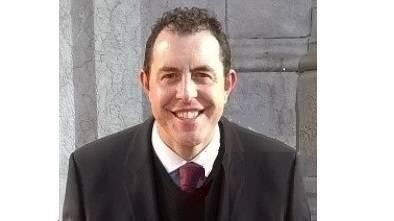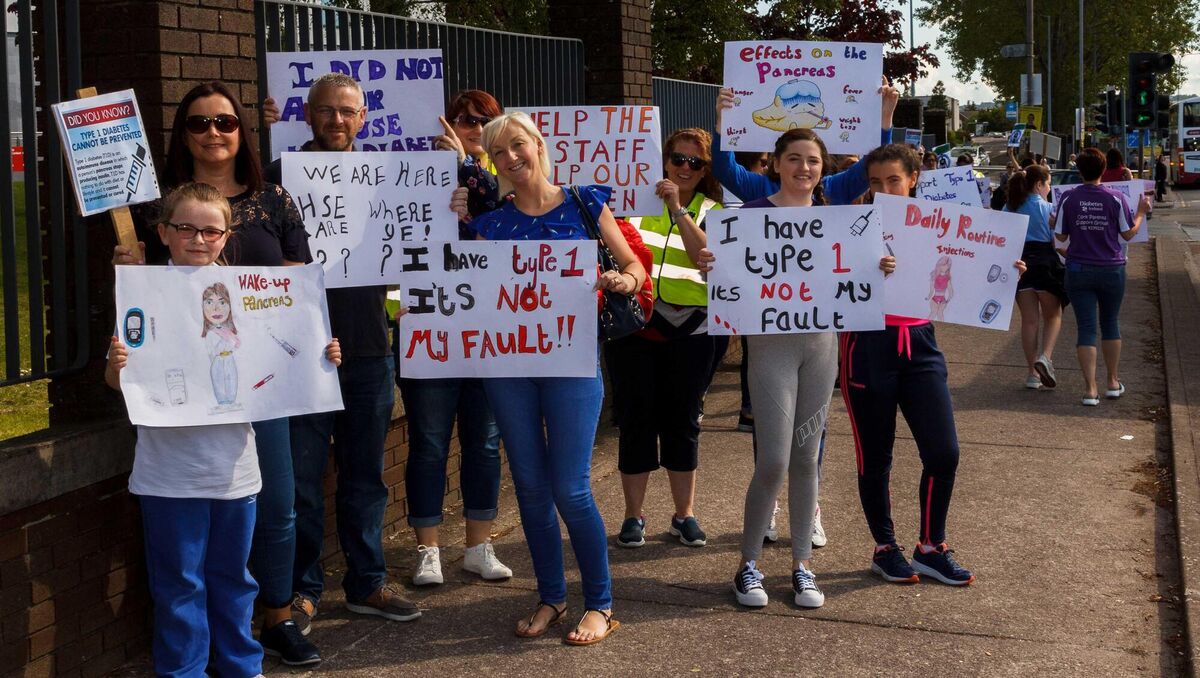CUH consultant calls for funding in care of children with diabetes

A doctor explains to a child how to manage his diabetes using an insulin pump. Some 51% of children being treated by diabetes specialists in Cork University Hospital now use an insulin pump instead of injections. Picture: iStock
When people see Cork City Hall lit up in blue this Saturday, it might be worth reflecting upon what is currently the mini miracle of healthcare delivery to children with Type 1 diabetes.
Saturday, November 14, is World Diabetes Day. For those working in diabetes care, the day will be all about raising awareness of Type 1 Diabetes (T1D), an autoimmune condition affecting 3,500 to 4,000 children in Ireland.
People are probably more aware of Type 2 diabetes. This is where the pancreas produces some insulin, but not enough. Type 2 diabetes most commonly occurs in adults. Treatment involves following a healthy diet, regular physical activity and taking prescribed medications orally or by injection.

Type 1 diabetes is the most common type of diabetes in young people. It is an auto-immune condition. The cause is not yet known. Daily insulin therapy is needed to replace the insulin the body has stopped producing.
This condition can occur at any age in childhood or early adult life and causes a total deficiency of insulin. People's need to self-isolate due to Covid-19 has added to the challenges around T1D care for children, notably in Cork University Hospital.
CUH has rolled out insulin pump therapy, a more precise way of giving insulin which helps to manage exercise more accurately. Parents have welcomed the move from multiple injections to insulin pump therapy. Currently 51% of children attending the diabetes service in CUH are using insulin pumps.
“Since April 2020, the insulin pump training is now provided online,” said Dr Stephen O'Riordan, consultant endocrinologist at CUH. “Families can now do the majority of training from the comfort of their own homes. Children do still have to attend however this is now reduced to two hours on the day of the insulin pump start. All follow-up is now done virtually.”

The ratio of staff to patients is also wrong. There are simply not enough staff to cope with the rising number of cases of diabetes in Ireland, both Type 1 and Type 2.
Efforts by Diabetes Ireland, the only national charity in Ireland dedicated to helping people with diabetes, to raise awareness among the general public are helping, but greater State investment is also needed.
Up to five Irish children are diagnosed each week with Type 1 diabetes, and that number is rising. Cork University Hospital presently serves nearly 500 young people with Type 1 diabetes that they developed in childhood.
Normal standards would suggest those young people would need at least six full-time nurses. CUH has three paediatric diabetes nurse specialists: Laura Crowley, Anne Bradfield and Conor Cronin. CUH also has two paediatric specialist dietitians: Shirley Beattie and Irene O’Mahony.
“These five do all the hard work,” said Dr Stephen O'Riordan. “We are also very lucky to have Dr Colin Hawkes, a leading expert in childhood growth who has recently returned to Ireland from the Children’s Hospital of Philadelphia (CHOP), USA. He is a great addition to the team.
“We do have a really fantastic team of healthcare professionals here. The nurses play a vital role. They are the first port of call for parents when their children are sick. They do incredible work, but we should have six specialist diabetes nurses, not just three.
“We are working with nearly 500 children with Type 1 diabetes. We're hoping that the big message that people take away from World Diabetes Day is that Type 1 Diabetes (T1D) in childhood is an unique condition that we all need to know about.”
With T1D, children will need lifelong daily insulin therapy. It is caused by the body’s own immune system destroying the insulin-making cells (beta-cells) of the pancreas.
Symptoms include excess drinking, frequent urination, excessive tiredness and sleeping a lot, and rapid weight loss over a short period. Parents who suspect their child has T1D are urged to seek immediate medical advice from their GP.
“Up to 20% can present late, with a severe illness called Diabetic ketoacidosis (DKA),” said Dr O'Riordan. “A simple finger prick test by a GP can lead to early diagnosis and avoid the risk of developing DKA.
“Early diagnosis is vital to ensure that DKA does not develop. DKA is a potentially life-threatening condition that requires urgent medical attention. Because of Covid, of course, people are rightly self-isolating, but parents shouldn't hesitate if they suspect their child might have diabetes. Get medical help immediately.”
While the particular focus of World Diabetes Day is on raising awareness of the symptoms of T1D and actions parents should take, there is also a very real need to highlight the need for greater resources to be invested in this area of healthcare.

People may remember dozens of parents and children staging a protest outside CUH in May 2019 to push for State investment in dedicated children's services across a range of illnesses.
Central to that push were Endocrinology services, which encompasses treatment of diabetes along with other illnesses including thyroid cancer, Addison’s disease and Cushing’s syndrome.
The State has said it will provide a dedicated new children's hospital in the CUH to serve the southern region. When that happens, the public relief will be very audible.
Meanwhile, the particular case of diabetes helps explain why parents were protesting outside CUH last year, urging the State to invest in underfunded healthcare services for children. The under pressure children's services also point to a need for investment in adult services.
“Our Paediatrics team deals with a lot of diabetes patients who really should be moved onto adult services, but those services are just not adequately funded,” said Dr O'Riordan. “We deal with more than 100 'children' who are 17 or 18, even up to 22 years old. These people are late-teens and young adults.
“That was one of the big reasons why parents took to picketing outside CUH last year. That situation has still not been sorted. Our team are doing an incredible job, but healthcare for children really needs more investment and diabetes really highlights that.”
To learn more about World Diabetes Day, or to find out more about the efforts to raise awareness of the illness and its treatments, visit , the website of Diabetes Ireland.





